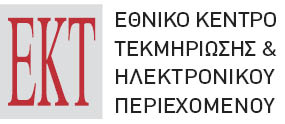Η παρούσα διπλωματική εργασία αναλύει και εξετάζει τους λόγους για τους οποίους οι περισσότερες αρχικές δημόσιες εγγραφές (Initial Public Offerings-IPO) των εταιριών της περιόδου 1996-2004 στο Χρηματιστήριο Αθηνών (www.athexgroup.gr) στη διάρκεια των ετών έως το 2018. Επίσης παρουσιάζει τα χαρακτηριστικά γνωρίσματα της Ελληνικής κεφαλαιαγοράς καθώς και του σύγχρονου επιχειρηματικού περιβάλλοντος. Τα δεδομένα της εργασίας αφορούν 185 αρχικές δημόσιες εγγραφές της περιόδου 1996 έως 2004 και αντλήθηκαν από τα πρωτότυπα ενημερωτικά δελτία των εταιριών της περιόδου της δημόσιας εγγραφής. Τέλος εξετάζουμε τις διαφορές μεταξύ εθελούσιας (voluntary) και μη εθελούσιας/διαγραφής (involuntary/delisting) καθώς και τον χρόνο διαγραφής (time-to-delist). Τα ευρήματά μας είναι τα ακόλουθα: α) υπάρχει θετική συσχέτιση μεταξύ της πιθανότητας διαγραφής μιας εταιρίας και το αρχικό μέγεθος της δημόσιας εγγραφής καθώς και το μέγεθος της χειραγώγησης των κερδών (earnings manipulation) και β) υπάρχει αρνητική συσχέτιση μεταξύ της περιόδου της δημόσιας εγγραφής (hot-issuance period) και της ποιότητας του ελέγχου (audit quality). Τα αποτελέσματα αυτά συμφωνούν με τη θεωρία της ασύμμετρης πληροφόρησης (asymmetry information), ιδιαίτερα για τις εθελούσιες διαγραφές (voluntary delisted firms).
Given a relatively recent surge in stock delistings across the U.S., Europe and the U.K., combined with a scarcity of new Initial Public Offerings (I.P.O), the question of why firms delist is reinstated and brought under sharp focus. This thesis aims at addressing this question through the lens of the Hellenic public market, in which delisting is particularly pronounced. The thesis provides a comprehensive review of the local corporate environment leading up to the “hot period” of intense I.P.O. activity and the aftermath of subsequent delistings. A number of keystone characteristics of the Hellenic environment, among others, audit quality, close-family ownership, the effects of a “low-trust society” and listing regulatory framework are linked with agency theory, asymmetric information theory and market timing theory to provide the necessary theoretical framework upon which hypotheses can be formed and empirically falsified. A rich set of hand-picked, primary data, collected directly from the Athens Stock Exchange is then used for empirical analysis. Focusing on early signs of delisting that are apparent before, or on the day, of the I.P.O. we examine determinants of delisting and time-to-delist, as well as differences in these effects for voluntary delisted firms vs involuntary delisting firms. We find that the probability of delisting and time to delist are positively associated with relative offering size and earnings’ manipulation, and negatively associated with hot-issuance periods and the joint effects of audit quality, amount of information in the I.P.O. prospectus, and the percentage of non-voluntary information. Our results are more strongly in line with asymmetric information explanations and more prevalent for voluntary delisted firms. The conditionality of these results, upon the specific characteristics of the Hellenic market, provides a wide range of policy implications that are primarily relevant to emerging markets. Overall, the thesis extends the range of explanations for delisting risk by documenting I.P.O. survival factors for a new and different class of stocks.
 Εθνικό Κέντρο Τεκμηρίωσης και Ηλεκτρονικού Περιεχομένου (ΕΚΤ)
Εθνικό Κέντρο Τεκμηρίωσης και Ηλεκτρονικού Περιεχομένου (ΕΚΤ)

